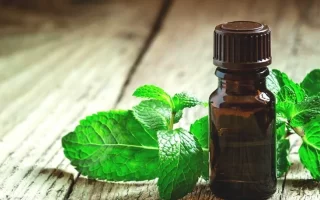The morning after an overindulgent night often brings with it the dreaded hangover, a condition characterised by headache, nausea, dehydration, and fatigue. These symptoms not only cause discomfort but also have a significant impact on one’s ability to function effectively, which in turn can affect societal productivity and wellbeing. This makes understanding and seeking effective remedies for hangovers a matter of interest for many.
What is a Hangover?
Table of Contents
A hangover manifests as a series of unpleasant physiological and psychological symptoms experienced following the consumption of alcohol. Common markers of this condition include:
- Headache: Often described as severe and debilitating.
- Nausea: A sensation of discomfort in the stomach accompanied by an urge to vomit.
- Dehydration: Alcohol’s diuretic properties can lead to a loss of fluids and electrolytes.
- Fatigue: A feeling of extreme tiredness and lack of energy.
How Does Alcohol Cause Hangovers?
The metabolism of alcohol plays a pivotal role in the onset of hangover symptoms. When alcohol is consumed, it is first broken down into acetaldehyde, a toxic compound that contributes significantly to hangover symptoms. Simultaneously, the diuretic effect of alcohol causes the body to lose fluids at a faster rate than normal, leading to dehydration, which exacerbates the symptoms of a hangover.
Societal Interest in Hangover Remedies
Given the widespread consumption of alcohol, there is a natural interest in effective hangover management. Across society, a multitude of anecdotal remedies and commercial products claim to offer relief. From “hair of the dog” to herbal supplements, the variety of proposed solutions is vast, yet many lack scientific backing.
The Scientific Verdict on Hangover Cures
Despite the plethora of remedies available, high-quality, scientific evidence supporting the efficacy of most hangover cures remains scarce. Research conducted by institutions such as King’s College London highlights the need for more rigorous studies in this area. The quest for a reliable hangover cure continues, with the scientific community calling for methodologically sound research to validate the effectiveness of proposed treatments.
Evidence-Based Strategies for Hangover Management Responsible Drinking and Hydration
Experts unanimously affirm that the most effective hangover prevention strategy involves responsible drinking and staying well-hydrated. Alcohol consumption in moderation, paired with water intake, can mitigate the intensity of hangover symptoms. The dehydration caused by alcohol’s diuretic effect necessitates the replenishment of fluids to prevent the ensuing headache, dizziness, and dry mouth typically associated with a hangover.
The Role of Sleep
Sleep plays a crucial role in the recovery process from a hangover. Adequate rest allows the body to repair and restore its normal functions. Chavarria, in a discussion on hangover management, notes, “When you’re asleep you’re not really kind of conscious of all those horrible feelings” (Popular Mechanics). This statement underscores the importance of sleep in providing relief from the discomfort caused by excessive alcohol consumption.
The Importance of Time
Time remains the only proven cure for hangovers, as it allows the body to metabolise the alcohol consumed and rehydrate. Dr. Pulde from Forbes emphasises, “Your body needs to metabolize the alcohol you consumed while giving itself time to rehydrate, heal tissue that has been irritated and quell the immune response”. This natural recovery process is critical for the alleviation of hangover symptoms.
Dietary Considerations
The severity of a hangover can be influenced by dietary choices made during alcohol consumption. Incorporating carbohydrates can help maintain blood sugar levels, which often drop after drinking. Additionally, opting for lighter-coloured alcoholic beverages can be beneficial as they typically contain fewer congeners, toxic chemical byproducts of fermentation, compared to their darker counterparts. Harvard Health advises avoiding darker-coloured alcoholic beverages to reduce hangover severity.
By adhering to these evidence-based strategies, individuals may find relief from hangover symptoms and better manage their well-being following alcohol intake. However, it is important to remember that the most reliable way to prevent a hangover is to drink in moderation and prioritise one’s health and safety.
Potential Remedies with Scientific Backing Vitamin B Complex, Magnesium, Folic Acid, and Electrolytes
A Los Angeles-based doctor has suggested a combination of vitamin B complex, magnesium, folic acid, and electrolytes as a potential hangover remedy. The rationale behind this recommendation lies in the belief that these nutrients may help in alleviating symptoms by replenishing what the body loses during alcohol consumption and improving metabolic processes involved in the breakdown of alcohol.
- Vitamin B Complex: B vitamins are essential in aiding the body’s conversion of food into energy and may help in metabolising alcohol more effectively.
- Magnesium: Known to relax muscles and aid in hydration, magnesium may counteract some effects of alcohol, such as headaches and muscle cramps.
- Folic Acid: As a member of the B vitamin family, folic acid is crucial for producing and maintaining new cells, which could be beneficial in repairing any alcohol-induced cellular damage.
- Electrolytes: Alcohol’s diuretic effect leads to the loss of electrolytes. Replenishing them is vital for maintaining fluid balance and preventing dehydration.
While these components show promise, the evidence supporting their efficacy is still limited. The combination, however, is a low-risk intervention that could potentially offer relief from hangover symptoms. According to Detox Today, a combination of vitamins and nutrients can help detox the body and mind.
Clove Extract and Tolfenamic Acid
Preliminary studies have identified certain substances like clove extract and tolfenamic acid that show statistically significant improvements in hangover symptoms. Notably, these substances could reduce the overall intensity of hangovers:
- Clove Extract: Recognised for its anti-inflammatory properties, clove extract has been associated with a notable reduction in hangover severity.
- Tolfenamic Acid: An anti-inflammatory painkiller often used for migraines, tolfenamic acid has demonstrated potential in lessening the discomfort associated with hangovers.
Despite these findings, the scientific community calls for caution due to the low quality of the supporting evidence and the absence of replication in independent studies. This underscores the need for further research to substantiate the effectiveness of these remedies.
The GRADE Methodology
The GRADE (Grading of Recommendations Assessment, Development and Evaluation) methodology plays a significant role in assessing the quality of hangover studies. It provides a transparent and structured process for rating the quality of evidence and the strength of recommendations in health care. Hangover studies often score low in the GRADE system due to:
- Risk of Bias: Many studies lack sufficient blinding or have other design flaws that could influence the results.
- Inconsistency: Results often vary significantly between studies.
- Indirectness: Some studies may not directly address the hangover remedies in question.
- Imprecision: The measurement of hangover symptoms is subjective and can lack precision.
- Publication Bias: The possibility that studies with positive results are more likely to be published.
This rigorous evaluation highlights the necessity for more robust research practices in the field of hangover remedies.
Zinc and Vitamin B3 in Alcohol Metabolism
Research published in the Journal of Clinical Medicine sheds light on the role of zinc and vitamin B3 in alcohol metabolism. These nutrients are involved in the conversion of ethanol to acetaldehyde, a key step in alcohol breakdown by the body:
- Zinc: This mineral is critical for the function of many enzymes that metabolise alcohol.
- Vitamin B3 (Nicotinic Acid): Required for the enzymatic process that converts alcohol to a less toxic form.
Diets low in these nutrients may exacerbate hangover symptoms due to a less efficient metabolism of alcohol. As such, individuals with zinc and vitamin B3 deficiencies might experience more severe hangovers. This insight offers a new perspective on how dietary habits can influence hangover severity and recovery.
The current landscape of hangover remedy research presents a mixed picture. While there are some promising leads, the lack of high-quality evidence underscores the importance of further investigation into these potential treatments. The GRADE methodology and the role of specific nutrients highlight the complexity of hangover physiology and the need for scientific rigour in this field.
The Future of Hangover Treatments Introduction of New Treatments: Myrkl’s Emergence
The market has seen the introduction of a new anti-hangover supplement named Myrkl. Claiming to break down 70% of alcohol in 60 minutes, Myrkl positions itself as a preemptive measure against hangover symptoms such as headaches, nausea, and fatigue. The recommendation is that by consuming two pills before drinking, individuals can avoid the undesirable aftermath of alcohol consumption. While the product has garnered attention, experts stress the necessity for independent replication of results to validate such claims, as the current evidence stems mainly from the company’s research.
The Need for Rigorous Scientific Studies
Reliable hangover cures remain elusive, largely due to the absence of rigorous scientific studies. The potential for establishing dependable treatments hinges on the execution of methodologically sound research. This includes:
- Using larger sample sizes to ensure statistical relevance
- Incorporating diverse participant groups to reflect the general population
- Applying control groups and double-blind procedures to reduce bias
These rigorous methods will provide a foundation for evidence-based conclusions regarding the efficacy of hangover remedies.
Current Hangover Research Landscape
Hangover research requires high-quality, large-scale studies to substantiate the effectiveness of proposed treatments. The prevailing issue with current research is the very low-quality evidence, primarily due to methodological limitations. The Alcohol Hangover Research Group at King’s College London states that no two studies reported on the same remedy and no results have been independently replicated. This inconsistency and lack of standardisation hinder the development of effective hangover remedies.
Moderation and Responsible Drinking
Despite advancements and the introduction of new products, moderation and responsible drinking continue to stand as the most effective ways to prevent hangovers. The body’s ability to metabolise alcohol and recover from its effects naturally remains the only universally recognised ‘cure’. As research progresses, experts and health professionals alike remind the public that the best way to avoid a hangover is to drink sensibly. This message resonates with the consensus view in the scientific community and aligns with the advice provided by health authorities worldwide.



